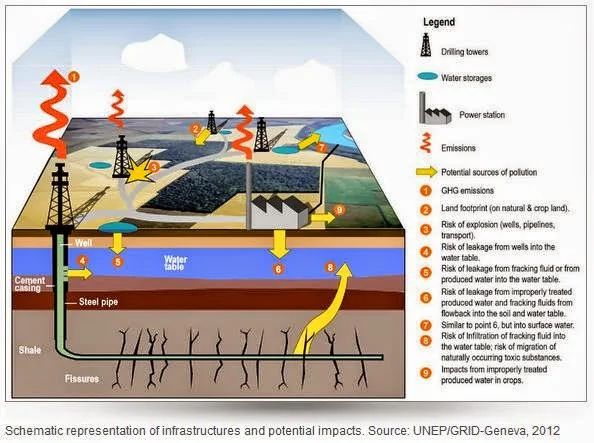Un terremoto de 5,2 grados en la escala Richter se ha notado en el interior de la provincia de Albacete, según datos del Instituto Geográfico Nacional (su página web está caída pero informa a través de Twitter). Según datos de instituto alemán Geofon el epicentro se encuentra a siete kilómetros de la población de Ossa de Montiel, en las cercanías de las Lagunas de Ruidera, y ha tenido una profundidad de 14,8 kilómetros.
El terremoto se ha sentido en varias poblaciones de Albacete, Madrid, Murcia, Cartagena, con grados de intensidad III, definida como débil-moderada, según el instituto de terremotos estadounidese.
En 2012 la sociedad Oil and Gas Capital logró tres permisos de fracking de la Junta de Castilla-La Mancha. Uno de ellos en la comarca de Montiel, en la zona donde se ha producido el terremoto. La sociedad presentó dichas solicitudes al Gobierno autonómico en 2011, que adoptó la resolución positiva el 26 de julio de 2012. Se trata de tres proyectos denominados s Esteros, Almorada y Nava en donde tienen permisos de investigación por un periodo de seis años.
El último terremoto que sufrió España se produjo en Murcia en 2011. Se produjeron dos moviemientos sísmicos, el mayor tuvo una magnitud de 5,1 grados, y sacudieron a la localidad de Lorca. El suceso se llevó la vida de nueve personas. El pasado 17 de febrero se produjo un terremoto de 2,7 grados en la zona de Lorca, con un grado de intensidad III.
http://cincodias.com/cincodias/2015/02/23/economia/1424709188_911224.html
23/2/15
--
-
Artículos relacionados:
El terremoto se ha sentido en varias poblaciones de Albacete, Madrid, Murcia, Cartagena, con grados de intensidad III, definida como débil-moderada, según el instituto de terremotos estadounidese.
En 2012 la sociedad Oil and Gas Capital logró tres permisos de fracking de la Junta de Castilla-La Mancha. Uno de ellos en la comarca de Montiel, en la zona donde se ha producido el terremoto. La sociedad presentó dichas solicitudes al Gobierno autonómico en 2011, que adoptó la resolución positiva el 26 de julio de 2012. Se trata de tres proyectos denominados s Esteros, Almorada y Nava en donde tienen permisos de investigación por un periodo de seis años.
El último terremoto que sufrió España se produjo en Murcia en 2011. Se produjeron dos moviemientos sísmicos, el mayor tuvo una magnitud de 5,1 grados, y sacudieron a la localidad de Lorca. El suceso se llevó la vida de nueve personas. El pasado 17 de febrero se produjo un terremoto de 2,7 grados en la zona de Lorca, con un grado de intensidad III.
http://cincodias.com/cincodias/2015/02/23/economia/1424709188_911224.html
23/2/15
--
-
Artículos relacionados:
Ισπανία: Σχετικοί με το φυσικό αέριο οι σεισμοί στον Κόλπο της Βαλένθια; Σχετική έρευνα γεωλόγων αναμένουν οι ισπανικές αρχές.
El depósito de gas está sobre una falla...



















 GR
GR FR
FR DE
DE ES
ES IT
IT RU
RU EU
EU